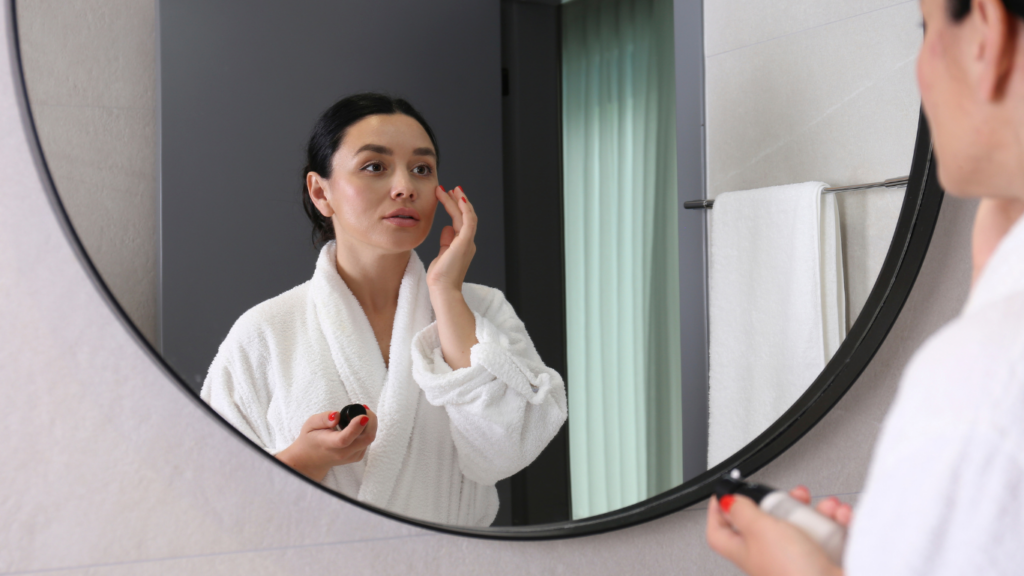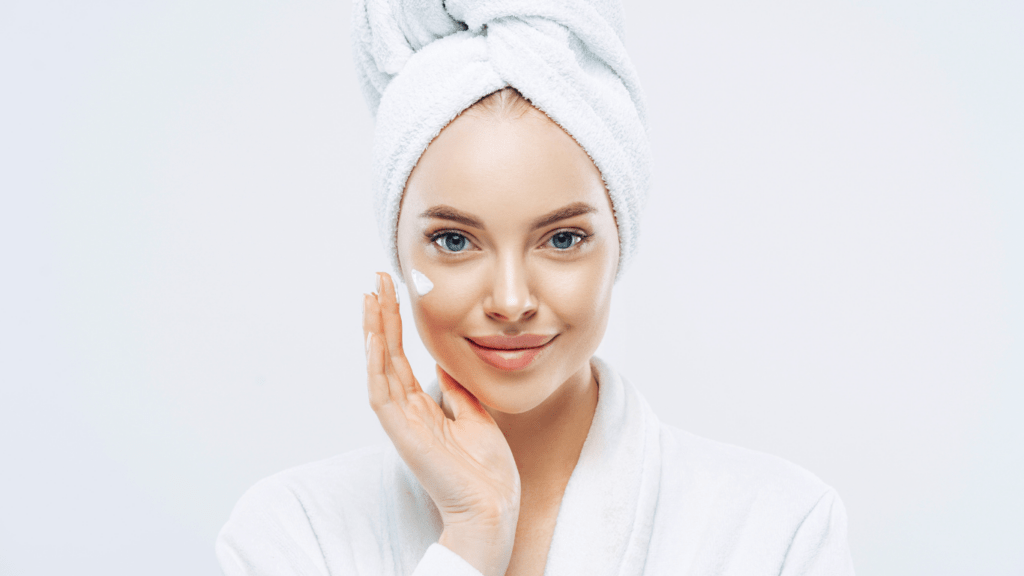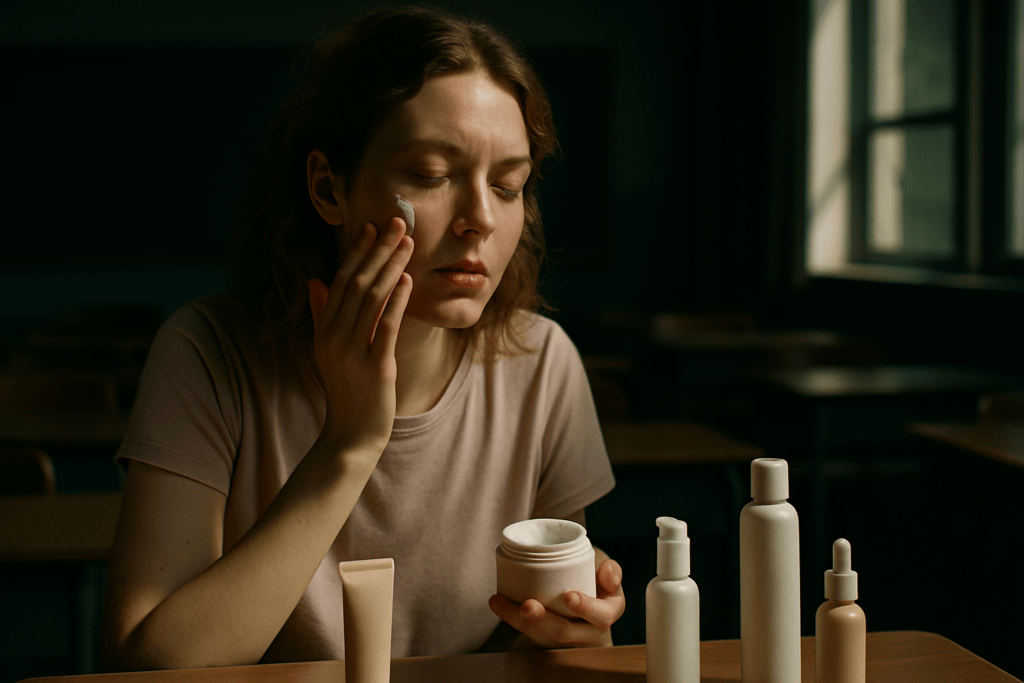Understanding Skin Hydration
Hydration plays a crucial role in keeping your skin healthy and radiant. Properly hydrated skin appears plumper and smoother, reducing the appearance of fine lines.
The Science Behind Skin Hydration
Skin hydration involves the balance of moisture in your skin cells. The outermost layer, the stratum corneum, acts as a barrier that retains moisture. When this barrier functions well, it minimizes water loss. Humectants, like hyaluronic acid, draw water into the skin, while emollients, like oils, seal that moisture in. Sebum production also contributes to skin’s natural hydration. When balanced, it protects and prevents water loss.
Common Causes of Dehydrated Skin
Several factors contribute to dehydrated skin. Environmental elements, like low humidity and wind, strip skin of its moisture. Daily routines, such as using harsh cleansers or taking hot showers, can damage the skin barrier. Lifestyle choices also matter; inadequate water intake affects overall hydration. Moreover, age affects moisture retention in the skin, with older skin being more prone to dryness.
Essential Daily Habits
Integrating essential daily habits can keep your skin hydrated all day. These habits revolve around lifestyle choices that directly impact your skin’s moisture retention.
Drinking Enough Water
Drinking adequate water is vital for skin hydration. Aim for at least 8 glasses of water daily to support your body’s natural hydration processes. Water helps maintain skin elasticity and prevents dryness. For added benefits, consider setting reminders throughout the day to ensure consistent intake.
Eating Hydration-Friendly Foods
Eating hydration-friendly foods boosts skin moisture.
- Foods rich in water content like cucumbers, watermelon, and oranges hydrate skin from within.
- Omega-3 fatty acids found in salmon and walnuts also help maintain skin’s lipid barrier, reducing water loss.
- Make these foods a regular part of your diet to enhance skin hydration.
Effective Skincare Routine

Implementing an effective skincare routine is crucial for keeping your skin hydrated all day. It involves selecting the right products and applying them correctly. Here’s how to optimize your skincare routine:
Choosing the Right Moisturizer
Selecting an appropriate moisturizer is vital for skin hydration. Look for moisturizers with ingredients like hyaluronic acid and glycerin that attract and retain moisture. For example, products containing squalane and ceramides improve the skin’s barrier function. People with oily skin should opt for gel-based moisturizers, whereas those with dry skin benefit from cream-based ones. Always consider skin type when choosing a moisturizer.
Importance of Serums
Serums play a significant role in maintaining skin hydration. They’re formulated with higher concentrations of active ingredients to penetrate deeper layers of the skin. I recommend using serums with components like hyaluronic acid and vitamin E, which provide long-lasting hydration. Apply a serum before your moisturizer for optimal results. Adding serums to your routine enhances the efficacy of other products in maintaining skin moisture.
DIY Hydration Tips
Homemade remedies can be very effective in keeping skin hydrated. Explore these tips to enhance your skincare routine with natural ingredients.
Homemade Face Masks
Hydrating face masks can be made using common kitchen ingredients. For example, mix 2 tablespoons of honey and 1 tablespoon of yogurt for a soothing mask. Apply it and leave for 15 minutes before rinsing with warm water.
Avocado also provides hydration; mash 1 ripe avocado and add 1 teaspoon of olive oil. Apply this mixture to your face and leave it on for 20 minutes. Rinse off with lukewarm water to reveal moisturized skin.
Oatmeal masks can help too; combine 1/3 cup of oatmeal with 1/2 cup of hot water. Let it sit for 5 minutes, then add 2 tablespoons of plain yogurt and 2 tablespoons of honey. Apply the mixture and leave it on for 15 minutes before rinsing.
Natural Oils for Hydration
- Natural oils can lock in moisture.
- Coconut oil acts as an emollient, providing a barrier that helps retain skin hydration.
- Apply a thin layer after showering.
- Argan oil, rich in vitamin E, provides both hydration and nourishment.
- Use a few drops, massaging gently into the skin twice a day.
- Jojoba oil, similar to the skin’s natural oils, absorbs quickly.
- Apply it before bedtime for overnight hydration.
- Almond oil, containing fatty acids, helps restore the natural oil barrier.
- Massage a few drops into your skin, focusing on dry areas.
Lifestyle Adjustments
Maintaining hydrated skin requires more than just skincare products; lifestyle adjustments play a crucial role.
Managing Stress
Reducing stress is essential for keeping skin hydrated. Stress triggers the release of cortisol which can interfere with skin’s ability to hold moisture. I practice mindfulness techniques like meditation and yoga to manage stress. Engaging in regular physical activity also helps. I ensure to take breaks and prioritize sleep, aiming for 7-9 hours per night. Balanced diet choices, including foods rich in omega-3 fatty acids, support overall well-being and skin hydration.
Environmental Factors
Environmental factors significantly impact skin hydration. I use a humidifier to combat dry indoor air, especially during winter. Keeping indoor humidity levels around 40-60% helps skin retain moisture. Protecting skin from harsh weather, I use scarves and gloves during cold months and sunscreen daily. Exposure to the sun’s UV rays can dehydrate skin, so broad-spectrum SPF 30 or higher is essential. Avoid overexposure to air conditioning which dries out the skin; moderate usage and hydration sprays can counteract this.


 Creative Director at Divine Glamour Trail, is the visionary behind the platform, which is dedicated to bringing readers the latest trends in hairstyles, beauty, and skincare. With a passion for timeless fashion and expert style guidance, George provides tips, secrets, and updates that empower individuals to enhance their personal style. His platform is a go-to source for anyone looking to stay ahead in the fashion game, combining modern trends with timeless elegance to help readers feel confident and look their best.
Creative Director at Divine Glamour Trail, is the visionary behind the platform, which is dedicated to bringing readers the latest trends in hairstyles, beauty, and skincare. With a passion for timeless fashion and expert style guidance, George provides tips, secrets, and updates that empower individuals to enhance their personal style. His platform is a go-to source for anyone looking to stay ahead in the fashion game, combining modern trends with timeless elegance to help readers feel confident and look their best.
